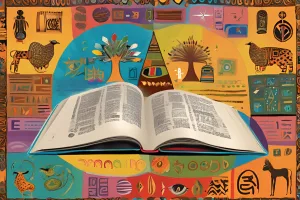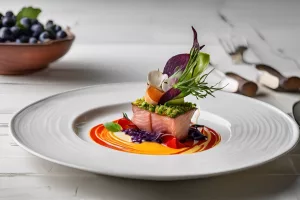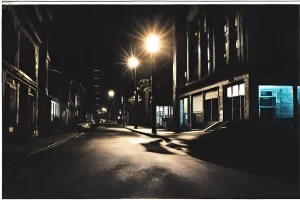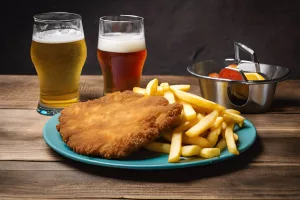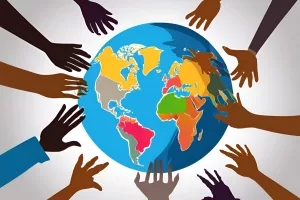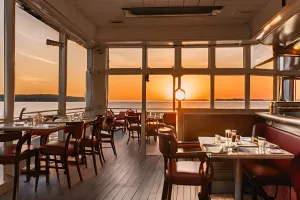A bright new hope for justice has emerged in South Africa as a recent court ruling changes the way consent is viewed in cases of genderbased violence. The Pretoria High Court declared parts of the Sexual Offences Act unconstitutional, shifting the responsibility of proving consent from victims to the accused. This breakthrough aims to better protect victims and ensure fairness in the justice system. With the backing of the Embrace Project, this ruling represents a significant step forward in the fight against genderbased violence, igniting a powerful movement towards equality and justice in the nation. As South Africa navigates this crucial moment, there is a renewed call for change that champions the rights and dignity of all.
The Mineral and Petroleum Resources Committee in South Africa is on an important journey to ensure that mining practices are safe and fair. Starting their tour in Rustenburg, they are investigating illegal mining and meeting with local workers to learn about its impact on communities. As they visit various mines, they check on health and safety measures and discuss ways to improve environmental practices. By listening to people and taking action, the committee aims to protect both the land and the lives of those involved in mining, working towards a brighter future for everyone.
Libraries in Cape Town are like bright beacons of knowledge and community, offering more than just books. They are safe havens where stories come alive, ideas blossom, and friendships grow, especially in neighborhoods like Manenberg and Hanover Park. However, many libraries have faced challenges from vandalism and harsh weather, leading to repairs that cost millions. Despite temporary closures, these libraries show amazing resilience, finding ways to keep learning alive, like hosting programs in community halls. As they rebuild, they remind us all of the importance of protecting these vital spaces for everyone.
The Shoprite Checkers Deli Hummus recall happened because some batches of hummus got contaminated, including flavors like Traditional and Za’atar. This urgent situation reminds everyone how important food safety is, and customers are encouraged to return the affected products for a full refund. The recall highlights the need for careful manufacturing and strict safety checks to protect people from health risks. It also shows how crucial teamwork is between food makers, regulators, and shoppers to keep our food safe. Overall, this event pushes the food industry to keep improving and ensure that what we eat is always safe and tasty.
In South Africa’s Free State, a big argument erupted when the government gave luxury cars worth R10 million to traditional leaders on Heritage Day. Many people are upset, saying this money would have been better spent on urgent community needs, especially since the province is struggling financially. Critics question whether these gifts truly help traditional leaders do their jobs or if they just highlight a disconnect between old customs and today’s challenges. This situation raises important questions about how society values tradition while trying to meet modern demands, all amidst a backdrop of financial stress and political debate.
The BELA Act, recently signed by President Ramaphosa, has stirred up a storm in South Africa. Critics worry it could harm mothertongue education, especially for Afrikaans speakers, which is vital for preserving their cultural identity. Groups like AfriForum are raising alarms, fearing that the Act might lead to cultural loss. In response to the backlash, the President has paused some parts of the law to allow for more discussion. This ongoing debate highlights the importance of language and culture in shaping South Africa’s identity.
In the lively city of Rio de Janeiro, the G20 Environment and Climate Sustainability Ministers Meeting wrapped up, showcasing Brazil’s strong leadership on environmental issues. South Africa’s Minister Dion George celebrated this teamwork and shared his country’s vision for the future, emphasizing biodiversity, tackling plastic pollution, and improving waste management. As South Africa gets ready to lead the G20, there is a strong focus on creating fair and sustainable solutions for everyone. The meeting ended not with final decisions, but with a shared promise to work together on urgent environmental challenges ahead.
Siba Mtongana is a shining star in African cuisine, known for her awardwinning restaurant, Siba, celebrated as Africa’s Best FineDining Hotel Restaurant in 2024. She mixes traditional South African flavors with global tastes, creating beautiful dishes like “Dombolo Dance,” which features delicious steamed buns. Siba’s culinary talent has earned her global fame through her show, “Siba’s Table,” and she inspires many with her story of hard work and passion. With each plate, she shares the rich traditions of Africa, proving that great food can connect people from all walks of life.
Streetlighting is a vital part of our cities, making them safer and more inviting at night. These bright lights help prevent crime and accidents, creating a sense of security for everyone. With new technologies like LED lights, streetlights are also becoming more energyefficient, which is great for the environment. Recent city efforts to fix over 5,500 streetlight issues show a commitment to improving urban spaces and getting communities involved in keeping them bright and safe. As cities grow, streetlights will keep evolving, lighting the way to a brighter, safer future for all.
The Jip de Jager Drive upgrade in Cape Town is set to transform the busy road into a dual carriageway by February 2025, making daily commutes smoother for many residents. This project, celebrated by local leaders, aims to reduce traffic jams and boost the economy by connecting communities better. As construction progresses, the road will feature new lighting and markings, ensuring safety for all users. Ultimately, this upgrade is not just about improving traffic; it symbolizes hope and progress for a vibrant, connected future in Cape Town.
Kloof Nek Road in Cape Town is a beautiful but dangerous route that connects the busy city to the peaceful coastline. With its steep hills, the road has seen many accidents, especially with big trucks. A recent crash involving a cement truck injured several people and caused a power outage, raising urgent calls for better safety measures. While steps have been taken, like lowering speed limits and adding signs, the community knows that safer driving habits and vehicle care are just as important. As they work together to find new solutions, the spirit of Cape Town shines through, blending its rich history with a commitment to safety on the roads.
Kapstadt Brauhaus is a lively restaurant in South Africa that mixes delicious German food with warm South African hospitality. Guests are treated to hearty dishes like crispy schnitzels and juicy burgers, all paired with a great selection of refreshing beers. The atmosphere buzzes with live music and sports, making each visit a fun experience for everyone. Plus, with exciting competitions and a loyalty app, there’s always something new to enjoy! Whether you’re a local or a visitor, Kapstadt Brauhaus welcomes you to share in the joy of good food and good company.
In the colorful world of South African politics, Advocate Busisiwe Mkhwebane’s recent social media comments have sparked a lively debate about the duties of public officials. These officials, as guided by the Constitution, must respect dignity, equality, and unity, balancing their personal opinions with their public responsibilities. Mkhwebane’s remarks, seen by many as unfair criticism of Parliament’s legal advisors, highlight the importance of maintaining trust and integrity in democracy. The incident reminds everyone that while social media can amplify voices, it also comes with the responsibility to uplift and protect democratic values. As South Africa continues its journey toward inclusivity, the role of Parliament in upholding these ideals remains crucial.
Deputy President Shipokosa Paulus Mashatile is on a mission to make the world a better place for everyone. He believes that education and strong partnerships, especially with SOAS University, can help young Africans gain the skills they need for a brighter future. During his visit to London, he spoke about the importance of working together to tackle big challenges like climate change and economic inequality. Mashatile envisions a world where urban and rural areas thrive together, promoting unity and sustainable growth for all. His inspiring words encourage everyone to join in creating a fair and hopeful future.
The Galley is a beloved beachfront restaurant in Fish Hoek, known for its fantastic food and breathtaking ocean views. Recently, it was auctioned for R350,000 a month, sparking excitement in the community. This iconic spot has a rich history and attracts both locals and tourists, making it a key part of the area’s culture. As the new owner takes charge, everyone is curious to see how they will honor the restaurant’s legacy and shape its future. The Galley isn’t just a restaurant; it’s a symbol of Fish Hoek’s vibrant spirit and connection to the sea.
The Innovative Sanitation Technology pilot project in Cape Town is a groundbreaking effort to improve toilets in five informal settlements. Launched on October 1, 2024, this initiative uses ecofriendly, nonsewered toilets to boost health and dignity for residents. With strong community involvement and support from organizations like the Bill & Melinda Gates Foundation, the project aims to tackle the sanitation challenges faced by these underserved areas. By embracing advanced technology and sustainable practices, Cape Town is paving the way for a brighter, cleaner future for its communities. This project shows how smart solutions can create hope and change lives.






